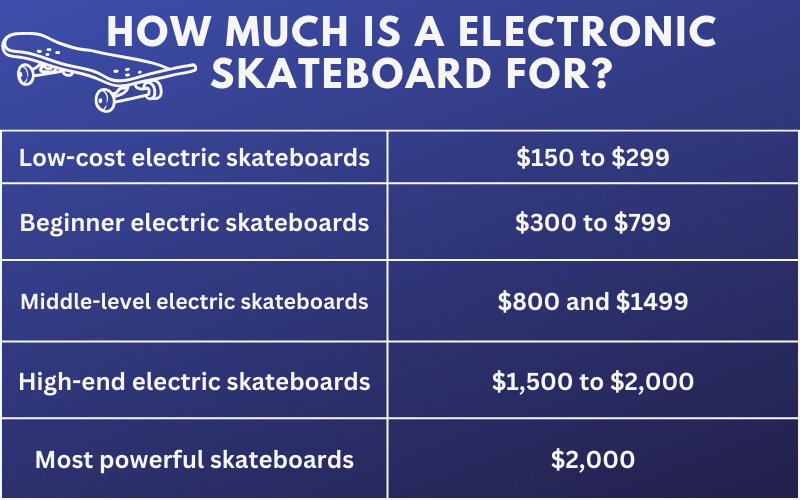How Much Does An Electric Skateboard Cost
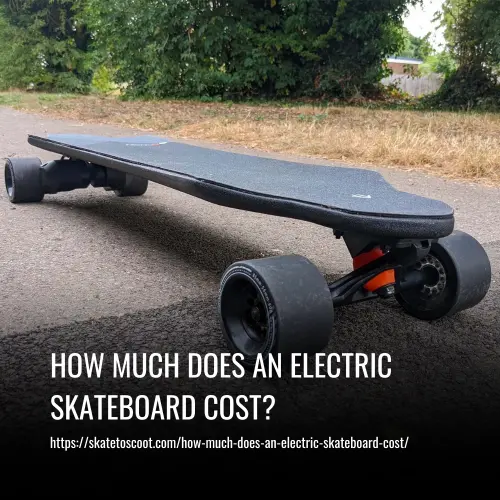
Electric skateboards are surging in popularity, but the upfront cost can be a shock. Expect to pay anywhere from $200 to upwards of $3,000 for a quality electric skateboard, depending on features and performance.
This guide breaks down the price ranges, factors influencing cost, and what you get for your money. We'll cut through the noise and give you the essential facts to make an informed buying decision.
Understanding the Price Spectrum
Entry-Level Electric Skateboards: $200 - $500
These boards are typically aimed at beginners and budget-conscious riders. Expect lower top speeds (around 15 mph), shorter ranges (5-7 miles), and basic features. Components may be less durable and the ride quality less refined.
Brands like Razor and some lesser-known Chinese manufacturers often fall into this category. They're suitable for short commutes or recreational use on smooth surfaces.
Mid-Range Electric Skateboards: $500 - $1,500
This price point offers a significant upgrade in performance and features. You can expect top speeds of 20-25 mph, ranges of 10-15 miles, and improved motor power.
Boards in this range often include features like regenerative braking, multiple riding modes, and more durable components. Popular brands like Backfire and WowGo often compete in this segment.
High-End Electric Skateboards: $1,500 - $3,000+
These are the premium electric skateboards, designed for experienced riders seeking top performance and range. Expect top speeds exceeding 25 mph, ranges of 20+ miles, and advanced features.
High-end boards often incorporate advanced suspension systems, powerful motors, and high-capacity batteries. Brands like Boosted (though out of business, parts still exist), Evolve, and Lacroix are known for their premium offerings.
Factors Influencing Electric Skateboard Cost
Battery Capacity and Type
The battery is one of the most significant cost drivers. Higher capacity batteries (measured in Wh - Watt-hours) provide longer ranges but also increase the price.
Lithium-ion batteries are the standard, but variations in chemistry and quality also affect cost. Longer lifespan batteries drive up the price.
Motor Power and Type
Motor power (measured in Watts) directly impacts the board's acceleration, top speed, and ability to handle hills. More powerful motors are more expensive.
Hub motors (integrated into the wheels) are generally less expensive than belt-driven motors, but offer less torque. Belt-driven motors are more powerful and easier to maintain.
Deck Material and Construction
The deck material affects the board's flex, durability, and weight. Decks made from carbon fiber or high-quality wood laminates are more expensive.
The complexity of the deck design and construction also contributes to the cost. Complex deck designs are more expensive.
Wheel Quality and Size
Larger wheels generally provide a smoother ride and better grip, but also add to the cost. The durometer (hardness) of the wheels also affects the ride quality and price.
High-quality urethane wheels are more durable and offer better performance than cheaper alternatives. The quality of wheels is essential to the riding experience.
Electronic Speed Controller (ESC)
The ESC controls the motor's speed and braking, impacting the board's responsiveness and smoothness. A high-quality ESC provides smoother acceleration and braking, but it's more costly.
ESCs also have different amp ratings, which influence the power output of the motor. The higher amp rating is equal to higher power.
Brand Reputation and Warranty
Established brands with a reputation for quality and reliability often charge a premium. A longer warranty period indicates the manufacturer's confidence in their product and can justify a higher price.
Consider the availability of replacement parts and customer support when evaluating the overall cost. Cheaper boards are harder to replace.
Hidden Costs to Consider
The initial purchase price is just the beginning. Factor in the cost of a helmet, protective gear (knee pads, elbow pads), and potentially replacement parts.
Charging the battery will add to your electricity bill, although the cost is minimal. Maintenance will also be crucial for long term health.
Making the Right Choice
Consider your riding style, intended use, and budget when choosing an electric skateboard. If you're a beginner, a mid-range board offers a good balance of performance and value.
Read reviews, compare specifications, and consider test riding different models before making a purchase. Do your research and choose wisely.
Ongoing developments in battery technology and motor design are constantly impacting the market. Expect to see prices fluctuate and new models emerge frequently.


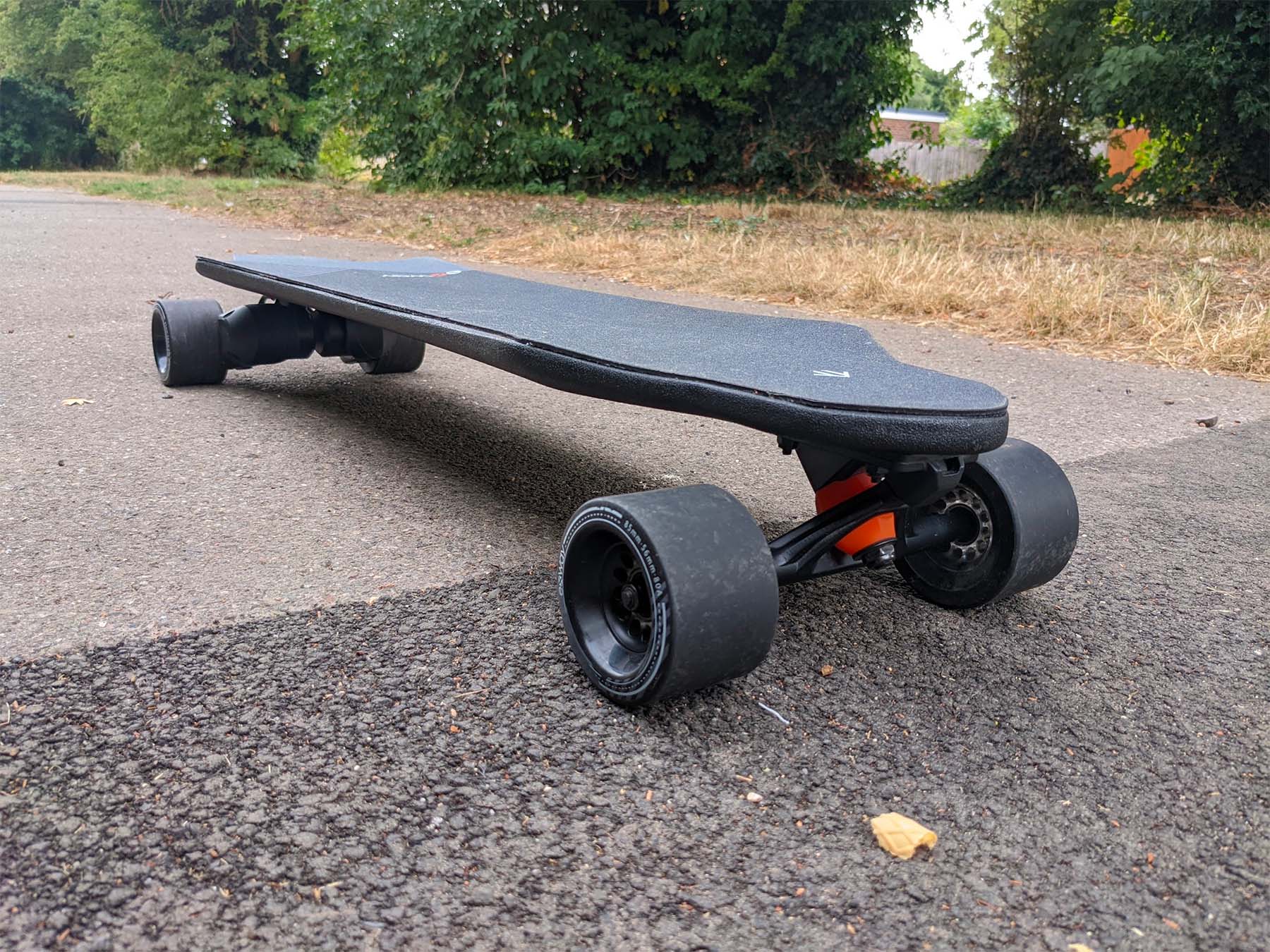

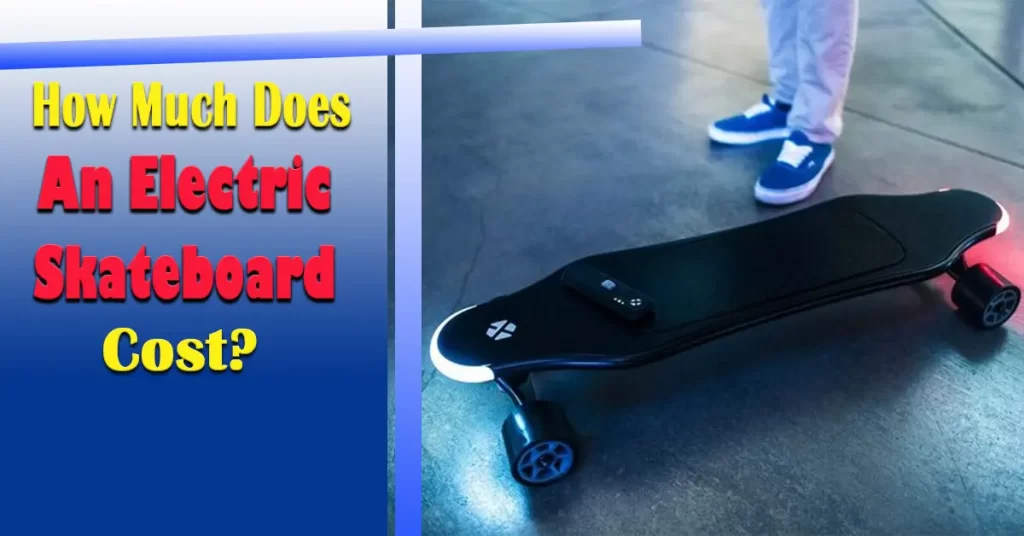
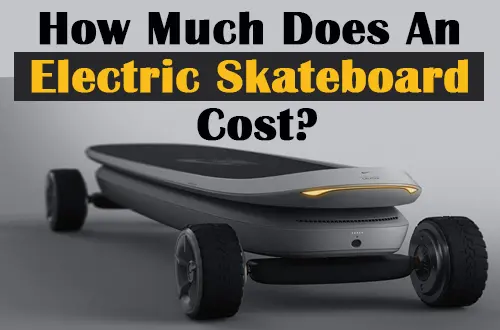
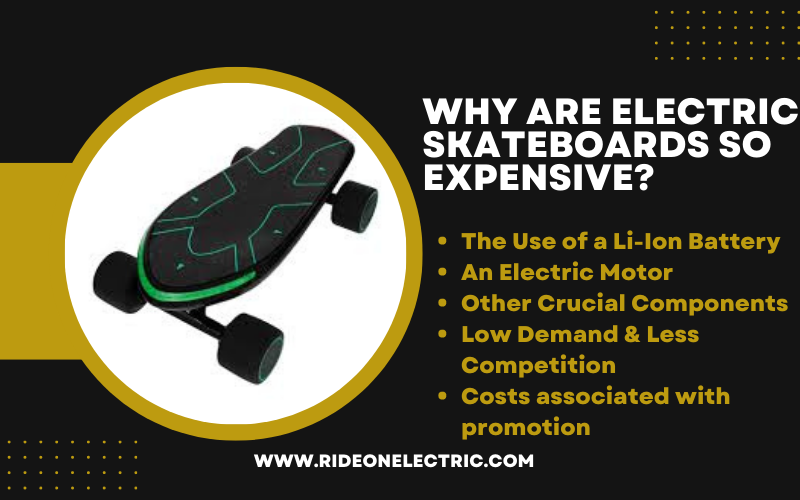
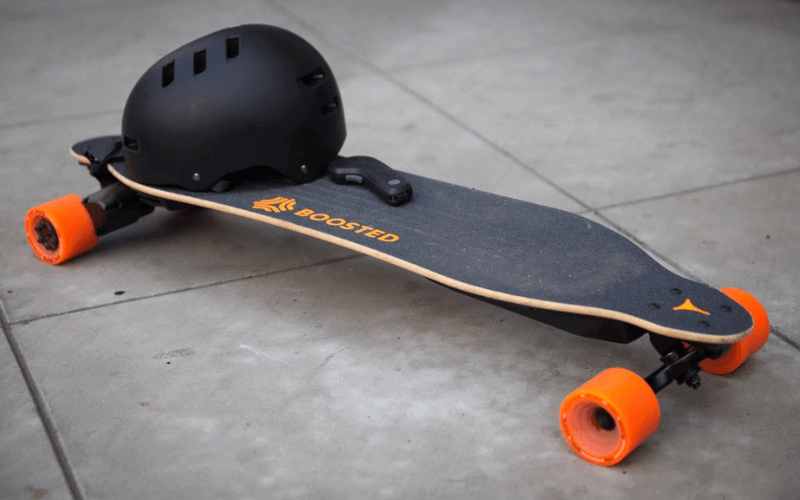



![How Much Does An Electric Skateboard Cost How Much Does A Skateboard Cost? [+Hidden Prices] 2025](https://skateboardgeek.com/wp-content/uploads/2021/06/Best-Electric-Skateboard-1024x576.png)





